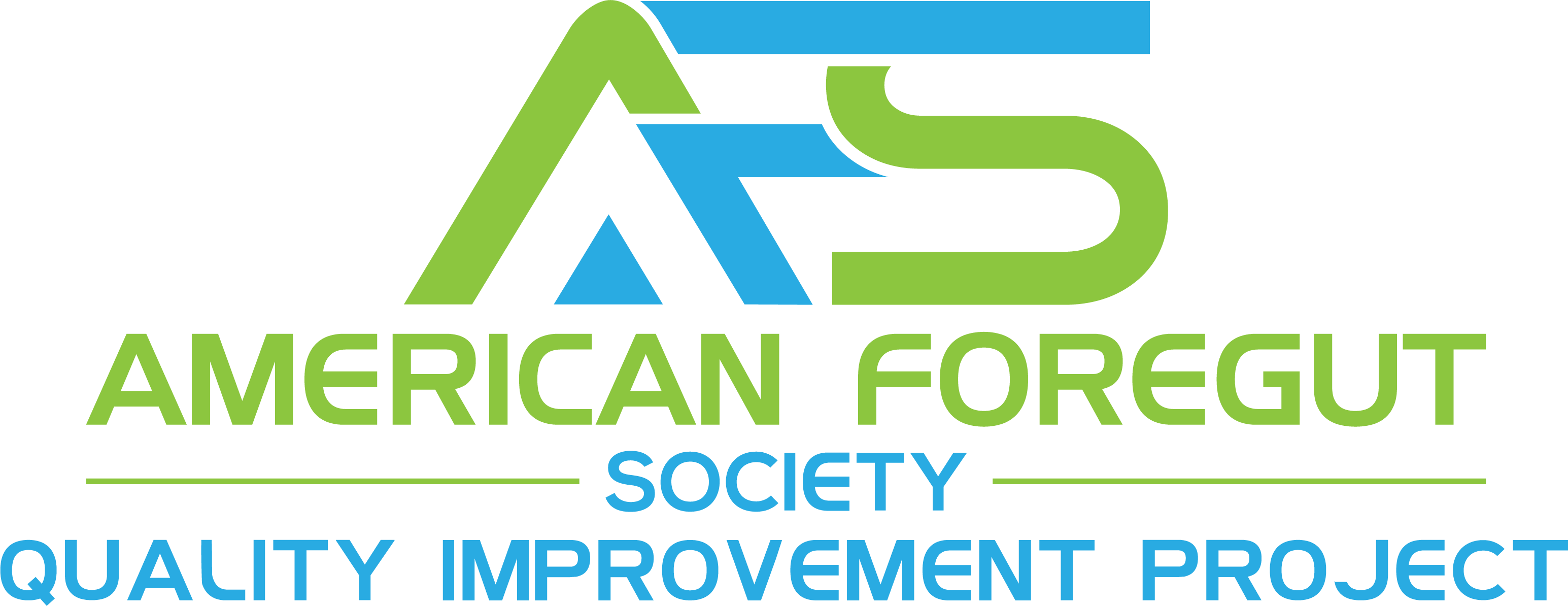
American Foregut Society Quality Improvement Project
Mission:
The mission of the AFS QIP is to provide online data collection and real-time analytic tools which will enable users to take both individual and aggregate outcomes data to personalize patient care using continuous quality improvement methodology.
Vision:
The vision of the AFS Quality Improvement Project (AFS QIP) is to support the vision of the AFS using continual quality improvement (CQI) as a method to provide personalized care for foregut disease patients.
What is QIP vs Research:
As long as patient data is collected and used for the purpose of continuously improving patient care, it is considered exempt from typical ‘research’ requirements of having a strict protocol with patient consent and Institutional Review Board approval. As such, any health care provider may collect limited protected health information as well as intervention and outcome data in a streamlined fashion.
Research Opportunities:
Any human research using AFS QIP data will be conducted through IRB-approved research methodologies (e.g., clinical trials, registries), and AFS QIP may provide appropriate forums for such research when requested.
Users:
Users will include practitioners and treatment developers (e.g., industry). AFS QIP will be a no-cost benefit to AFS practitioner members.
Types of Data Collection:
For purposes of clarity and simplicity, all of the data fields collected with the exception of PHI will be referred to as “all QIP data fields.”
- Basic patient information which by CQI standards may include limited PHI (Protected Health Information): Name, date of birth, gender, body mass index, referral source, prior procedures related to GERD, and contact information (phone, email, address) to be used to obtain follow-up status.
- Patient-reported Quality of Life (QOL) surveys to be obtained at baseline, 6 months post-procedure, and yearly for 5 years. Currently the QOL survey used is based on the ROARS QOL survey and will likely continue to evolve. Post-procedure surveys also ask about post-procedure complications.
- Baseline Studies: Manometry, reflux testing, endoscopy, pathology, imaging, and gastric emptying.
- Antireflux procedure: this includes multiple fields regarding technique including use of various types of mesh and various methods of performing an antireflux procedure on the esophagus. Perioperative and 30-day complications will be obtained by automated email to the surgeon and, for 30 days to the patient as well.
- Postoperative studies, when obtained, may be collected as well.
AFS QIP Board:
Dan Lister – President
Peter Janu – Vice President
Tripp Buckley – Secretary
Jocelyn Burke – Treasurer
Reginald Bell – Trustee
Mark Shachner – Trustee
Sponsors:
PLATINUM FOUNDING SPONSOR

GOLD FOUNDING SPONSOR


|